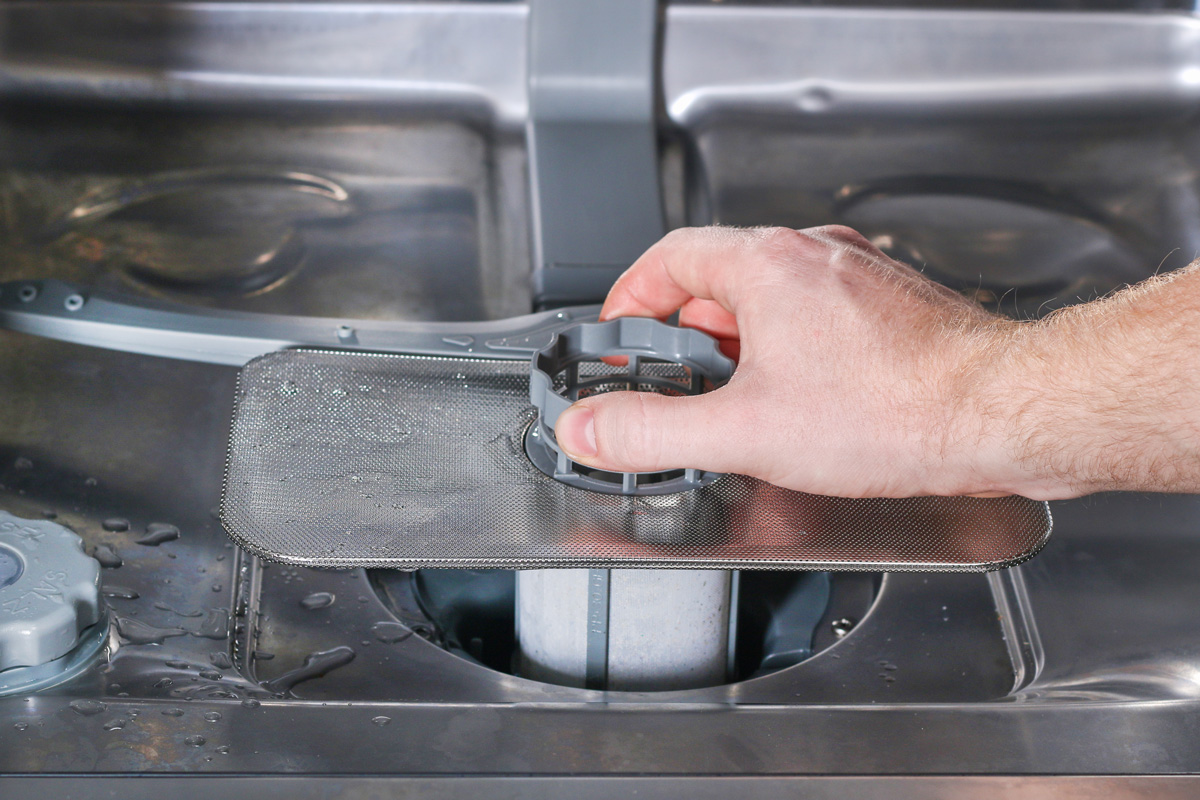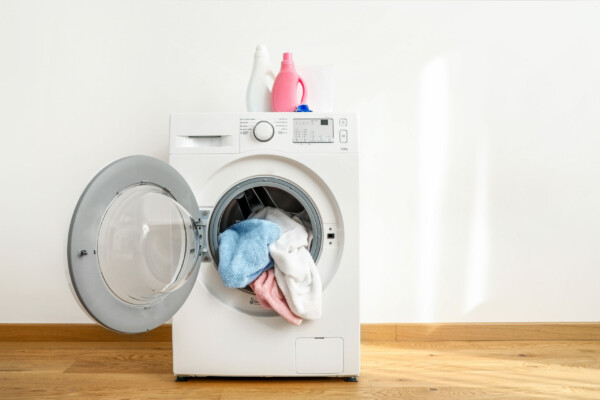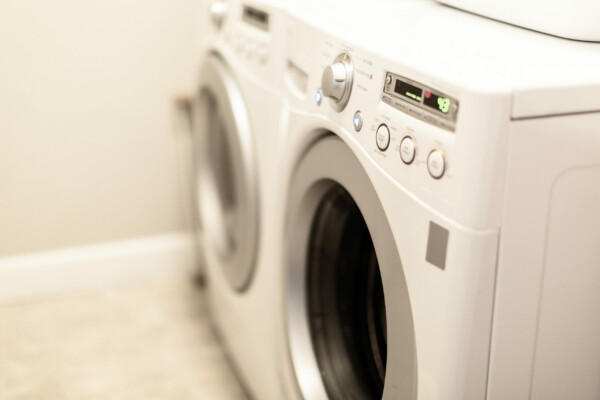15 Things You Should Never Put in a Dishwasher
The dishwasher is one of the best inventions in the appliances world, and it is a real kitchen workhorse. The truth is that dishes go in dirty and come out clean every day during the year. However, it would help if you were careful what to load into your dishwasher, or you may do more harm than good.
Dishwashers are magical, but if you ignore the simple rules of their operation, it will cause great trouble. Remember that some of them are pretty expensive to repair or replace. Fix Appliances CA has almost two decades of experience in the dishwasher repair industry. Upon our dishwasher technicians’ notes, we prepared a small guide on what can be loaded and what should not be put into it to save you money and prolong its lifespan. Unfortunately, a variety of the most valuable kitchen tools need only hand washing.
1. Big Pieces of Food
Remember that big pieces of food can clog the dishwasher drain or end up on otherwise clean dishes. Thus, the first important point is to scrape the dishes before you load them into the dishwasher.
2. Wooden Spoons, Cutting Boards and Bowls
When discussing wooden items, we mean cutting boards, wooden utensils and knives with wooden handles. Any dishwasher detergent is abrasive and, over time, will scratch the wood. Besides, the heat of the drying cycle can lead to the warping and cracking of all types of wooden things. Cutting boards must be hand-washed soon after you use them but avoid submerging them into water. The quickest way is to use baking soda to scrub away different food stains.
3. Cast Iron Cookware
If you want your cast iron cookware to serve you for a long time, do not ruin it using a dishwasher. The harsh detergent and excessive water strip away the oil and leave the cast iron unusable. Frankly speaking, these iron pans and skillets can last forever only when you must care properly. It would help if you seasoned them with oil to keep them from rusting and the food from sticking. This helps to leave a perfect cooking surface. Thus, it is necessary to rinse it in hot water using a soft sponge and dry it thoroughly with a towel. The same should be done for cast iron pots and pans with outer enamel coatings.
4. Aluminum Cookware
When we talk about aluminum pots, pans or baking sheets, they should also care. Of course, you can put them in the dishwasher, but it will lead to an unpleasant result, they will turn dark and dull. The main problem is that they oxidize and fade from shine after a single cycle. Besides, the detergent that is used in the appliance can cause pitting and corrosion. Even if the pan or a pot is labelled as “dishwasher safe”, do not put them a risk, and it would be better to hand wash.
5. Copper and Other Precious Metals
Copper pots, pans and mugs are pretty and look good. However, they require extra effort to keep them shiny and bright. Do not make your task harder than it is by putting it in a dishwasher. Chemicals in the detergent will lead to dullness and can cause corrosion and pitting. Remember that even the best cooper cleaner cannot remove pitting, be careful. We can’t mention silver, gold and bronze heirlooms that also need hand-wash. Otherwise, they will tarnish and lose their gleaming finish.
6. Non-stick Cookware
The other thing with nonstick cookware, most of them are labelled “dishwasher-safe” by the manufacturer, but they lose their first look coming out of the dishwasher. The point is that dishwasher detergents and high temperatures during the drying cycle can affect the nonstick coating. If you want to use it long, skip the drying cycle. But, when you notice the first sign of damage (scratching, chipping or flaking), do not use it as dangerous toxins can be released into the food.
7. Ceramic Pans and Other Cookware
Ceramic cookware is very popular for its non-stick cooking surface. Generally, a ceramic coating is bonded to the metal of such cookware. This coating can be applied to any metal, including aluminum, stainless steel, copper or cast iron. There is no exclusion here, as all dishwasher detergents can contain bleach and citric acids that are too harsh for the finish. Only hand wash can be applied to ceramic pans, pots and other cookware.
8. Most Plastic Items
You should be careful putting plastic items in a dishwasher. Many softer plastics cannot handle high temperatures. Though most hardier processor bowls, plastic cutting boards and mixing bowls can often go in the appliance, they will get scratched and dulled over time. Thus, hand washing is much better than putting them in a dishwasher.
9. Kitchen Knives, Graters & Sieves
Say “No” to putting kitchen knives in the dishwasher. The harsh dishwasher detergents will dull a knife’s blade, and the hot water and heat loosen kitchen knives’ handles. We must consider the same when you put any other kitchen tools with sharp edges. Graters and sieves can nick the plastic coating on the racks, and rust will appear. Wash all these items by hand in soapy water.
10. Fine China, Crystal or Painted Plates
Any glass, china or hand-painted heirlooms should be carefully hand-washed. They can chip, fade, or lose their finish in the dishwasher. As well as, any silverware with carved antlers or bone handles should stay out of the appliance. If you do not want to ruin them, hand wash them.
As for delicate crystal heirlooms, they should be hand-washed to prevent chipping. Remember that some lead crystals will become cloudy and pitted under harsh detergents. However, if you still want to use the dishwasher, use the top rack and place the glasses between the tines. This will help avoid damage and breakage.
11. Pressure Cooker Lids
Pay special attention to pressure cooker lids, including those for stovetop pressure cookers and those for electric types, like the Instant Pot. Never wash them in the dishwasher because food particles and detergent can collect or lodge in the regulator or safety valves. Hand wash in warm soapy water, rinse, and dry well if you want to continue using them.
12. Acrylic Dishware
Non-breakable and lightweight acrylic or melamine dishware is popular for its bright colours and patterns. However, the high water pressure, excessively high temperatures during the drying cycle and harsh detergents can damage acrylic plates and other dishware, causing hairline cracks and washing away whatever is imprinted on them or ruining them. Wash them by hand if you want to keep them looking new and last for a long time.
13. Gold-Coloured Flatware
Most silver utensils can go in the dishwasher, but we can’t say the same about gold-coloured flatware. They can lose their colour during the dishwasher cycle, only hand-wash.
14. Plates You’ve Glued Back Together
Unfortunately, if you keep the broken dish and repair it using glue or any other type of adhesive, you should wash it by hand. To remind you, the hot water and detergent you use in the dishwasher can easily dissolve adhesives.
15. Anything with Paper Labels
You must be careful with items that have paper labels, as, during the cycle, the paper and adhesive may come off. These pieces will clog the dishwasher drain and disposal system or at least stick on other dishes, creating a messy clean-up problem.
Along with containers, you may save bottles or glass jars to store food. There is no problem with putting them in the appliance, but first, remove all labels on them.
Surely, dishwashers are one of the best inventions for any homeowner in a kitchen. No matter how old your dishwasher is, follow our advice on what you should never do to get the best out of it and prolong its lifespan. Most issues you can face are the result of improper use of it. However, if your dishwasher is malfunctioning, do not try to repair it not to make things worse. Contact the dishwasher technicians at FIX Appliances CA to come to your place, determine the problem and fix it. Our representatives are available by phone at 888-242-0777, or you may submit a request online.
Date of page creation: November 29, 2022
Page update date: January 12, 2024
Ask a Question
FAQ: Top Frequently Asked Questions
What things you should never put in a dishwasher?
- Big Pieces of Food
- Wooden Spoons, Cutting Boards and Bowls
- Cast Iron Cookware
- Aluminum Cookware
- Copper and Other Precious Metals
- Non-stick Cookware
- Ceramic Pans and Other Cookware
- Most Plastic Items
- Kitchen Knives, Graters & Sieves
- Fine China, Crystal or Painted Plates
- Pressure Cooker Lids
- Acrylic Dishware
- Gold-Coloured Flatware
- Plates You've Glued Back Together
- Anything with Paper Labels




